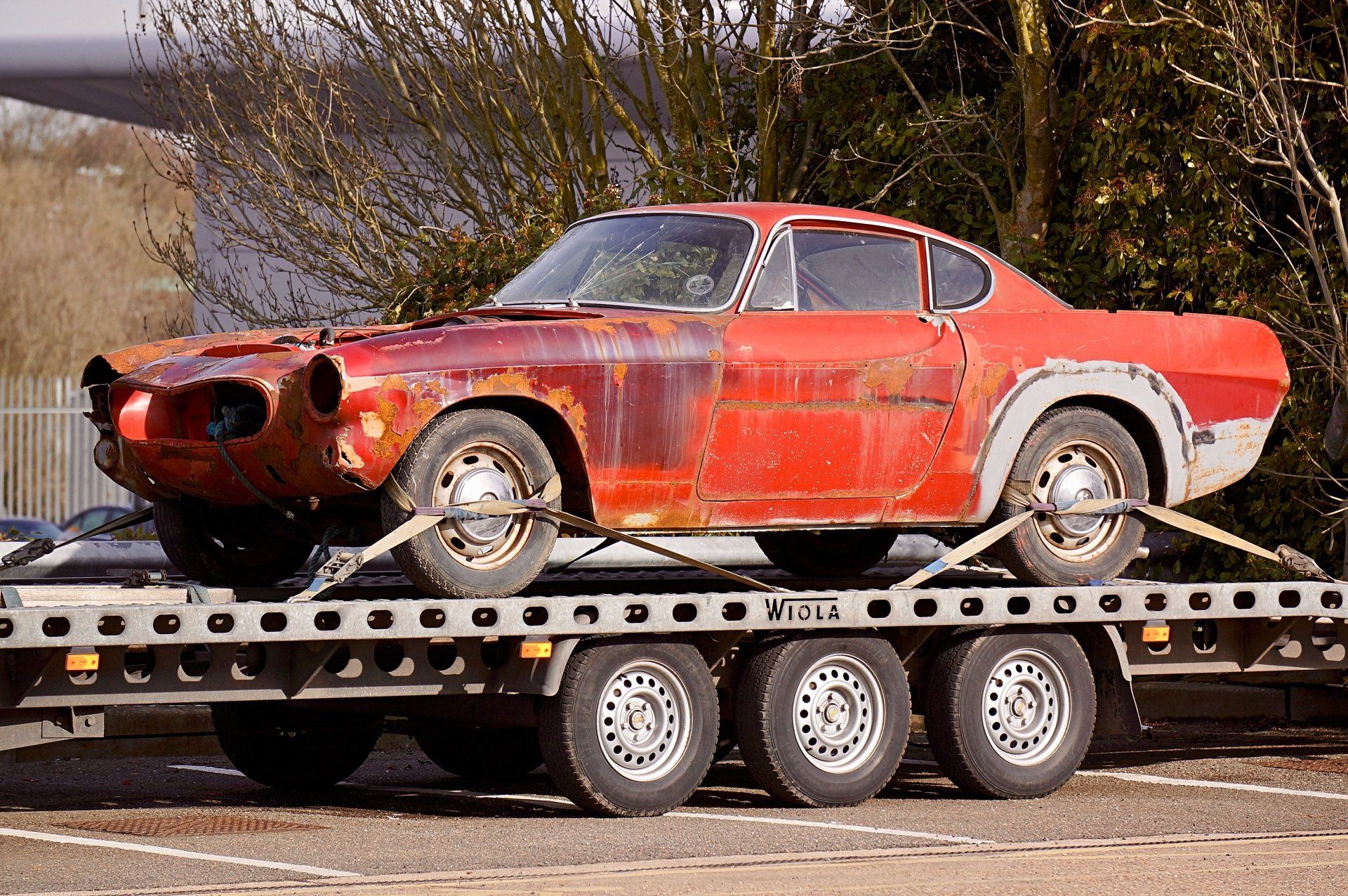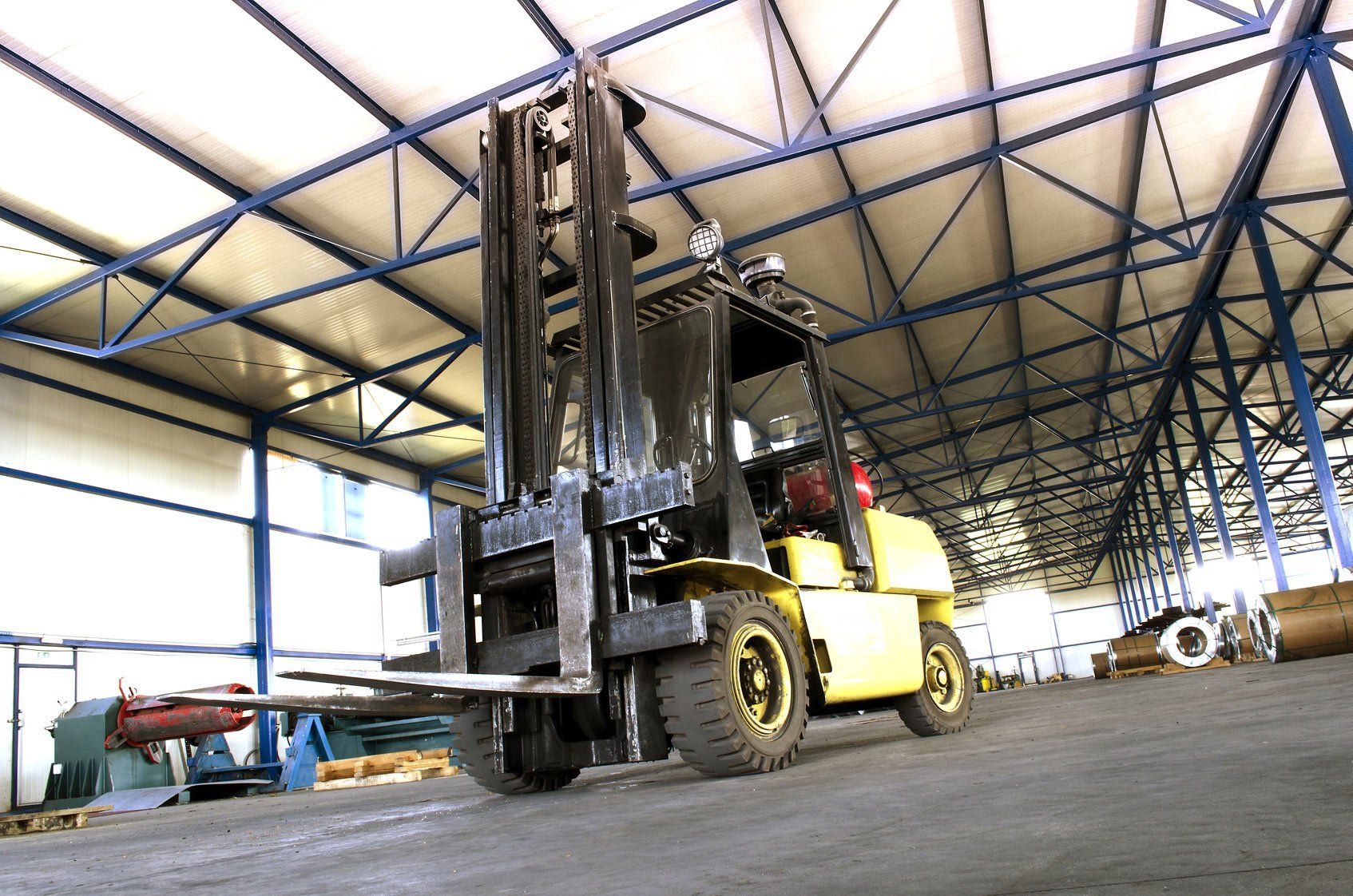Securing Air Cargo
Nick Carlson • March 13, 2019

Spring in Denver brings a unique set of challenges and opportunities for vehicle owners. As the snow melts and the days grow longer, it's essential to prepare your vehicle for the changing conditions. This article provides expert guidance on spring vehicle maintenance specific to Denver's climate, along with insights into how towing and roadside assistance services can support you during this season. Spring Vehicle Maintenance in Denver: What You Need to Know Denver's spring weather, characterized by its mix of warm days and occasional snowfall, demands special attention to vehicle maintenance. Here's a detailed look at what you should focus on: Transitioning from Winter to Spring Conditions As Denver transitions from cold to warmer temperatures, it's crucial to adjust your vehicle's maintenance routine. This involves: Tire Care : Winter in Denver often requires snow tires or chains. With the arrival of spring, consider switching back to all-season tires. It's also important to check tire pressure, as fluctuating temperatures can affect it. Brake Inspection : Winter driving in Denver can be hard on your brakes due to icy roads and salt. Spring is a good time to have them inspected and serviced if necessary. Fluid Levels : Ensure that all your vehicle's fluids, including coolant, brake fluid, and transmission fluid, are at appropriate levels. Spring is a great time for an oil change, as well. Battery Performance : Cold weather can be tough on batteries. Have your battery tested to ensure it's still performing optimally. Suspension and Alignment Check : Potholes and rough winter roads can affect your vehicle’s suspension and alignment. A thorough check is advisable to avoid any long-term damage. Adapting to Denver's Unique Spring Conditions Denver's spring can still bring snow and rain, making road conditions unpredictable. Therefore, keeping your vehicle's windshield wipers, lights, and defroster in good working order is imperative for safe driving. The Role of Towing and Roadside Assistance in Spring Roadside assistance and towing services in Denver play a vital role during spring. They provide e ssential services including: Towing Services for Emergen cies Despite careful preparation, vehicles can still encounter problems. Towing services in Denver are crucial for addressing vehicle breakdowns or accidents that are more common during this transitional season. Assistance with Common Springtime Issues Services like jump-starts for dead batteries, tire changes for flat tires, and lockout services are particularly useful during spring when vehicles are adjusting to the new season. Ensuring Safe Travel in Unpredictable Weather With Denver’s changeable spring weather, having a reliable towing and roadside assistance service ensures you're never stranded in case of sudden weather changes that can affect driving conditions. FAQs for Spring Vehicle Maintenance and Towing Services in Denver How often should I check my tire pressure in Denver's spring? Given the temperature fluctuations, it's wise to check your tire pressure at least once a month. What kind of maintenance does my vehicle’s air conditioning system need in spring? Have the system checked and refilled if necessary, to ensure it's ready for the warmer months ahead. Is it necessary to have my vehicle’s brakes checked as spring approaches? Yes, especially after the winter season, it's crucial to have your brakes inspected for wear and tear. Can towing services in Denver assist with off-road recoveries? Many towing services offer off-road recovery, which can be helpful if you're adventuring in the mountains during spring. Preparing your vehicle for spring in Denver is crucial for safe and enjoyable driving. Re gular maintenance, along with the support of towing and roadside assistance services, ensures you're well-equipped to handle the unique challenges of the season. By being proactive about vehicle care and knowing when to seek professional help, you can enjoy all that Denver's beautiful spring has to offer.

Professional car junk removal services offer an efficient and environmentally friendly solution for disposing of vehicles that are no longer operational or beyond repair. In this detailed exploration, we'll delve into the numerous benefits of using such services, particularly focusing on how they can alleviate the burden for vehicle owners and contribute positively to the environment. Environmental Responsibility Proper Disposal of Hazardous Materials: Vehicles contain various hazardous materials, including oil, coolant, and battery acid. Professional junk car removal services ensure these substances are disposed of responsibly, preventing soil and water contamination. Recycling: A significant portion of a junk car, including metal and certain plastics, can be recycled. Professional services facilitate this process, ensuring materials are reused, reducing the need for new raw materials and minimizing environmental impact. Convenience and Efficiency Hassle-Free Process: Removing a junk car can be a cumbersome process for an individual. Professional services handle all aspects of the removal, providing a hassle-free experience for the car owner. Time-Saving: Instead of spending time trying to figure out how to dispose of a junk car, owners can rely on professional services to manage the process quickly and efficiently. Financial Benefits Cost-Effective: Many junk car removal services offer to remove vehicles free of charge. In some cases, they might even pay the owner a small amount for the scrap value of the vehicle. Avoiding Fines and Penalties: In many areas, leaving a junk car on public property or even on private property in view can lead to fines or penalties. Using a junk car removal service helps avoid these potential expenses. Space and Aesthetics Reclaiming Space: Junk cars occupy valuable space in a garage or on a property. Removing them frees up this space for other uses. Improving Property Aesthetics: An old, rusting car can be an eyesore. Removing it enhances the appearance of the property. Safety Concerns Reducing Health Risks: Junk cars can become breeding grounds for pests and can pose various health risks. Professional removal eliminates these concerns. Preventing Accidents: Old cars, especially those in poor condition, can be hazardous, with risks of sharp edges or unstable parts. Removal services ensure these hazards are safely managed. FAQs Q: How does junk car removal help the environment? A: Junk car removal helps the environment by ensuring the safe disposal of hazardous materials, recycling car parts, and reducing the need for new raw materials. Q: Will I receive money for my junk car? A: It depends on the service and the condition of the car. Some services may offer a small payment based on the scrap value of the vehicle. Q: How long does it take to remove a junk car? A: The process is generally quick. Once you contact a removal service, they typically arrange to pick up the vehicle within a few days. Q: Do I need to prepare the car for removal? A: This varies by service. Some services may require you to remove personal belongings and ensure easy access to the vehicle. It's best to check with the specific service provider. Professional junk car removal services offer an array of benefits, including environmental responsibility, convenience, financial incentives, improved aesthetics, and safety. By choosing a professional service, car owners can ensure their old vehicles are disposed of in an eco-friendly and efficient manner, while also reaping the practical advantages of reclaiming space and potentially receiving financial compensation.

Denver's winter season brings its own set of challenges for drivers, particularly when it comes to towing and vehicle recovery. The frigid temperatures, snow-packed roads, and icy conditions demand heightened awareness and preparedness. In this article, we'll delve into essential winter towing safety tips, focusing on the unique requirements of Denver's winter conditions. Our insights are rooted in first-hand experiences and reliable sources, ensuring that you receive advice that's not only helpful but trustworthy. Essential Tips for Safe Towing and Vehicle Recovery During Denver's Winter Understanding Denver's Winter Conditions Before embarking on any towing task during winter in Denver, it's crucial to have a clear understanding of the local weather conditions. Denver experiences heavy snowfall and temperatures that can plummet well below freezing. These conditions can create hazardous road surfaces, reduce visibility, and affect vehicle performance. Prepare Your Vehicle Inspect Your Vehicle: Ensure your vehicle is in optimal condition. This includes checking the battery, brakes, tires, and heating system. For towing in winter, specifically, ensure your vehicle's towing capacity is adequate for the job at hand. Winter Tires: Equip your vehicle with winter tires. These tires are designed to provide better traction, handling, and braking in cold, snowy, or icy conditions. Emergency Kit Carry an emergency kit that includes items such as blankets, a flashlight, a first-aid kit, a shovel, and sand or cat litter for traction if stuck. Towing Equipment and Setup Use Suitable Towing Equipment : Ensure the towing equipment is suitable for the weight and type of vehicle being towed. This includes tow straps, chains, and tow bars. Check Connections : Double-check all connections and towing setups. In winter conditions, it's even more critical to ensure everything is securely fastened and functioning properly. Driving Safely While Towing Reduced Speed : When towing in winter conditions, reduce your speed to account for the increased weight and altered handling characteristics of your vehicle. Increased Following Distance : Maintain a greater distance than usual from the vehicle ahead, as stopping distances can be significantly longer when towing in icy or snowy conditions. Gentle Maneuvers: Execute all driving maneuvers gently. Abrupt turns or hard braking can lead to skidding or jackknifing. Be Aware of Surroundings Plan Your Route : Before you leave, plan your route and check traffic and weather updates. Avoid roads that are known to be problematic in winter weather. Visibility: Ensure your vehicle's lights are clear of snow and ice for maximum visibility. Use your headlights to increase your visibility to other road users. Know When to Seek Professional Help If you're not confident in your towing abilities or if the conditions are beyond your expertise, it’s wise to call a professional towing service. In Denver, many towing services are equipped and trained to handle the unique challenges of winter towing. Winter Towing Tips, Denver Towing Service, Safe Towing Practices Winter Towing Tips Regular Maintenance : Regularly maintain your towing equipment. This includes checking for any signs of wear and tear, especially before the winter season. Practice : If you're new to towing, practice in a safe and controlled environment before attempting to tow in harsh winter conditions. Denver Towing Service Local Expertise: Utilize a local Denver towing service that understands the specific challenges of towing in the area's winter conditions. 24/7 Availability: Look for services that offer 24/7 availability, as emergencies can occur at any time, especially in winter. Safe Towing Practices Training : Consider receiving formal training in towing and recovery. This can provide you with the skills and confidence needed to tow safely in various conditions. Stay Informed : Keep abreast of the latest towing regulations and safety practices. This is particularly important in a city like Denver, where weather conditions can change rapidly. FAQs Q: What should I do if my vehicle gets stuck while towing in the snow? A: If your vehicle gets stuck, use sand or cat litter for traction under the tires. Avoid spinning your tires excessively, as this can make the situation worse. If you cannot safely recover the vehicle, call a professional towing service. Q: How important is it to have winter tires for towing in Denver? A: It's extremely important. Winter tires provide better traction, handling, and braking in cold, snowy, or icy conditions, which is essential for safe towing in Denver’s winter. Q: Can I tow with a two-wheel-drive vehicle in Denver's winter? A: While possible, it's generally safer to use a four-wheel-drive or all-wheel-drive vehicle for towing in snowy and icy conditions due to their better traction. Q: Should I adjust my driving style when towing in winter conditions? A: Yes, adjust your driving style by reducing your speed, increasing your following distance, and making gentle maneuvers to accommodate the added weight and altered vehicle dynamics. Towing in Denver's winter conditions requires a combination of proper vehicle preparation, suitable equipment, safe driving practices, and an awareness of your surroundings. Always prioritize safety over haste, and don't hesitate to seek professional assistance if the situation becomes too challenging. By adhering to these guidelines, Denver drivers can navigate the winter towing landscape with confidence and security.




